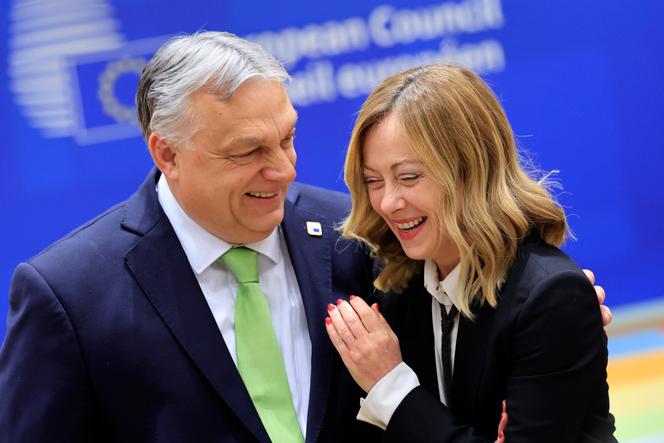


Every week, Le Monde journalist Nabil Wakim, who hosts a podcast in French about the challenges posed by climate change, answers listeners' questions. This week, Alexandre asked about the actions taken by far-right leaders where they are in power.
Alexandre's question: "I've seen your articles on Bardella and energy, but rather than bash the RN, I wondered if similar parties care about the climate when they are in power? Or do they do the same thing as the others?"
Nabil Wakim's answer: For far-right parties, climate is generally not a priority – in France, the topic is almost absent from the RN's program, for example. However, in the countries where they govern, they usually align their positions with fossil fuel producers' interests, challenging transition policies and encouraging climate skepticism. With regard to the RN, in particular, I would encourage you to read this article by several of my colleagues:
I reviewed the policies implemented in several countries where far-right movements govern, or have governed, to try to identify some major trends. I studied the approaches taken by the Law and Justice (PiS) party in Poland (in power from 2015 to 2023), by Viktor Orban's Fidesz in Hungary (in power since 2010), by Giorgia Meloni's government in Italy (in power since 2022), by President Jair Bolsonaro in Brazil (in power from 2019 to 2023) and by Donald Trump in the United States (in power from 2016 to 2020). I also looked into the actions undertaken by the coalition between conservatives and the far right in Sweden, which has been in power there since 2022. While these parties all differ in their approaches and govern in different contexts, it is interesting to note a common trend regarding the climate issue: doing nothing.
1: Total support for fossil fuels
While the goal of carbon neutrality by 2050 entails drastically reducing our fossil fuel consumption, far-right governments have promoted expanding these energies. In the US and Brazil, oil and gas exploration and production were massively encouraged, and methane emission regulations were relaxed. In Poland, the PiS party staunchly backed coal, which accounts for 80% of the country's electricity production, and is by far the most harmful energy source for the climate. They even mocked European decarbonization targets by committing to close coal mines as far back as 2049! In the US, Trump also greatly supported the struggling coal industry (although this theme is less prevalent in his current campaign).
In Italy, Meloni began her mandate by saying that her party "loved the environment," but immediately denounced the European Green Deal as "climate fundamentalism." She has recently launched a new energy plan, using part of Italy's climate funds, which could lead to new oil and gas projects in Africa. In Sweden, the right/far-right coalition has increased fossil fuel subsidies.
You have 61.59% of this article left to read. The rest is for subscribers only.
